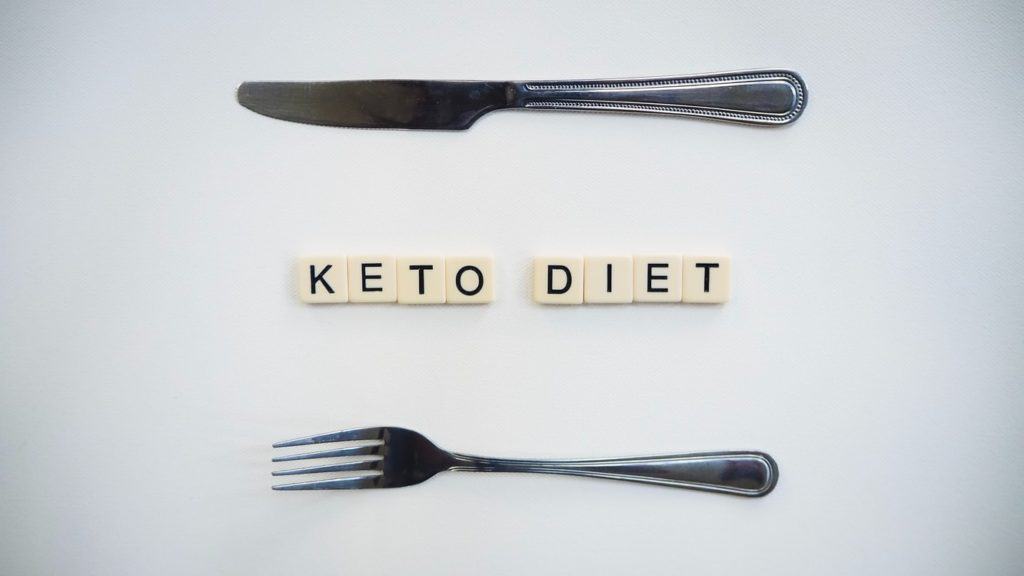
Anyone who has gone on a ketogenic diet for a sustained period knows how fickle the state of ketosis can be. While some sources state that an individual can reach and remain in ketosis while eating as much as 75-100 grams of carbohydrates, the truth is that for most people it is far less than that.
Knowing this, keto diet advocates are hesitant to consume any food product that may knock them out of ketosis. This includes the vast world of dietary supplements. One supplement in particular that garners many questions is pre workout powders and drinks.
Most pre workout supplements contain few, if any, carbohydrates. Therefore a pre workout supplement is highly unlikely to knock someone out of ketosis.
Other common ingredients in pre workout formulas, like creatine, beta alanine, and citrulline, will not knock someone out of ketosis either. These will have little to no impact on blood sugar or insulin levels.
There are exceptions; some pre workouts contain a decent amount of carbohydrates per serving, ranging from 15 grams to 50 grams. However, these pre workout products are typically designed for endurance athletes and don’t fall within the usual category which applies more to people who lift weights. Therefore, they are easy to identify.
How to Tell if a Pre Workout Will Knock You Out of Ketosis
The carbohydrate tolerance level will vary on an individual basis when it comes to maintaining ketosis. As mentioned, there are a select few individuals that can eat upwards of 100 grams of carbohydrates and remain in ketosis.
Some people utilize a targeted ketogenic diet, where they purposefully introduce carbs to use them for workouts, then immediately transition back to keto. This is designed to get the best of both worlds; first by using carbs for anaerobic exercise, then returning to ketosis to experience the benefits of that particular diet.
An individual experienced in this practice can dial it in with some trial and error. Once they get good at it, the period of time in which they are out of ketosis in quite short.
If a pre workout contains zero grams of carbohydrates (and thus zero grams of sugar) there is no concern over it knocking you out of ketosis. The artificial sweeteners used to flavor the product will not have a significant enough impact on insulin to negatively impact ketosis.
The same rule applies if a product contains a few trace carbohydrates. When a product approaches 10 grams of carbohydrates or more per serving is where there should be some user apprehension. At that point the blood sugar response may affect ketone levels slightly.
If, somehow, a pre workout with trace carbohydrates knocked someone out of ketosis, it would be for a ridiculously short period of time. Consider what a pre workout is for; energy to get through a workout. With vigorous exercise, you would burn through the handful of carbohydrates floating through the bloodstream so quickly that you’d immediately return to ketosis.
Many pre workout supplements are marketed as keto friendly, but quite frankly it’s not hard to achieve this. Product formulations have come a long way, and it’s very easy to create and flavor a pre workout that contains little or no carbohydrates.
Technically speaking, due to the individual variance that comes with maintaining ketosis, the only way to truly know if you are in a state of ketosis is to use a blood ketone meter. Many people use the urine strips, but those are not a proper indicator of ketosis since they only measure excess ketones. You could very well be in a state of ketosis and not get a reading on the urine strip.
The downside to the blood ketone meter is that they are costly to use. The meter itself is not expensive, but the testing strips can cost $1 or more per. Sometimes it can be hard to get a reading as well, which is frustrating when taking cost into consideration.

Which Supplements Will Knock You Out of Ketosis?
Many of the supplements listed in this article on supplements and fasting apply to ketosis, with the exception of coconut oil, medium chain triglyceride oil, and fish oil. Naturally, those products are direct fat sources and will only help maintain ketosis.
Aside from obvious non-keto-friendly supplements like carbohydrate powders, there are very few supplements that negatively impact keto.
Protein powders are iffy for a variety of reasons. One of which is that some contain a high amount of carbohydrates, particularly meal replacements and weight gainer shakes. Another reason to be wary is the high protein content within the product itself.
Protein can convert to carbohydrates through a process called gluconeogenesis, which can potentially knock someone out of ketosis. This will occur when there is a demand for energy, due to low carbohydrate availability.
An easy way around this is to add your own fat source to the protein shake to circumvent that process. Like carbohydrates, fats act as an energy source. In addition, they slow the digestion of other foods and blunt the insulin response. The combination of protein and fats in a shake is more keto friendly than protein alone.
The average protein bar will almost certainly knock someone out of ketosis due to the carbohydrate content. In fact, I’ve seen bars marketed as keto friendly where the macros just don’t line up with a ketogenic diet. Many protein bars will tout the net carb content on the label, and while sugar alcohols have less of an impact on blood sugar, they do still have some impact.
The ironic thing is that the products you should look at most extensively are often the ones marketed as keto friendly, notably the food products. As mentioned there is no true standard when it comes to a carbohydrate limit for keto, everyone is different. Check the labels and make your own judgment, never assume that a keto friendly product is just that.
Other commodity products, like individual vitamins, minerals, and supplement ingredients, are highly unlikely to affect ketosis. In fact some of these products, sometimes through direct or indirect measures, act as glucose disposal agents and can actually help lower blood glucose slightly.
With the right attention to detail, a person on a ketogenic diet can still experience the full benefit of clinically researched supplements, similar to that of a person on a more traditional diet.
